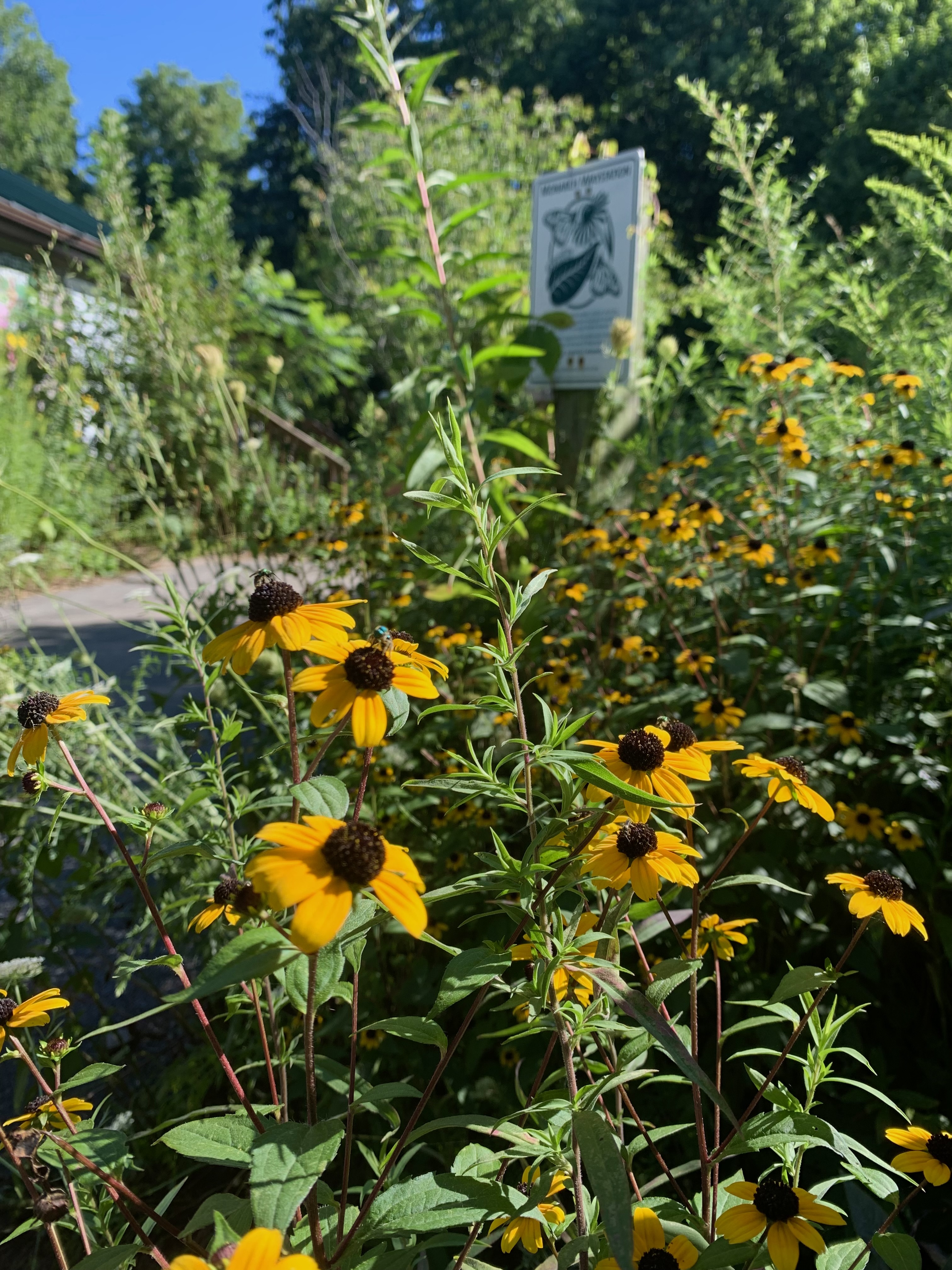By Sarah Barney
Pollination is a crucial process for everyone’s wellbeing; around one third of our food requires animals’ pollination, the process in which some flowering plants reproduce. Pollinators are the animals, typically insects, that move pollen from one flower to another. Common pollinators in Ohio are bees, hummingbirds, moths, butterflies, flies, beetles, and bats.
Populations of pollinating insects and other animals are on the decline primarily due to habitat loss from human development, agriculture, and mining. Having pollinator-friendly yard provides a safe space for growing populations and to pollinate your garden.
How you can help them:
Plant diverse garden of native plants
Native plants are super important for pollinators. They have been dependent on each other for thousands of years, and some pollinators have become picky. Like Monarch caterpillar, who only eats milkweed.
Having a diverse garden is important for attracting a variety of pollinators. This means diversity on all levels: color, size, flower shape, and mainly, when the flower blooms. To please the pollinators, it’s important to have blooms as much as you can.
Invest in woody plants like trees or shrubs
Woody foliage provide habitats for a lot of pollinators, like solitary bees and butterflies. They also typically bloom in the spring which helps diversify your yard.
Don’t use herbicides or insecticides
It’s easier said than done but decreasing your use of harmful chemicals is one of the best things you can do for pollinators (and other environmental issues). The herbicides kill pollinating plants and the insecticide kill pollinators. There are a variety of nonchemical alternatives.
Let weeds grow in your yard.
Most “weeds” you have in your lawn are actually not weeds, but rather important native pants. Clovers or prunellas or creeping thyme.
Provide water
The last thing you can do is provide pollinators with water. The easiest way is to add rocks to your birth bath. The bees or butterflies will land on the rocks and drink from the bath.
Further Reading and Sources
5 Best Ways to Make Your Garden Pollinator Friendly from Tufts
Why is Pollination Important? from the U.S. Forest Service
Organic Gardening and Alternatives to Pesticides by Steven Spence


